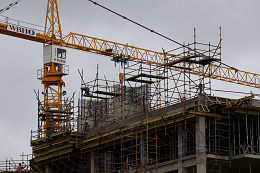On November 20th, as the world marks Africa Industrialisation Day, it offers a moment of reflection on the progress, challenges, and the transformative potential of industrialisation on the African continent. In this context, Nigeria, as a leading economic powerhouse on the continent, stands at a crucial juncture in its industrialisation journey.
Nigeria, blessed with abundant natural resources, has long been a focal point for discussions on industrialisation in Africa. The vision of a diversified and robust industrial sector has been a consistent theme in the nation’s development discourse. However, the path to industrialisation has been marked by both achievements and impediments.
In recent years, Nigeria has made commendable strides in diversifying its economy beyond oil dependency. Initiatives to boost manufacturing, agriculture, and technology sectors have gained traction. The government’s commitment to fostering a conducive business environment and attracting foreign investments underscores the determination to propel industrial growth.
Yet, challenges persist. Infrastructure deficits, inconsistent policies, and access to finance remain stumbling blocks to the full realisation of Nigeria’s industrial potential. Addressing these challenges requires sustained efforts, innovative strategies, and collaboration between the public and private sectors.
Industrialisation in Nigeria holds the key to unlocking significant socio-economic benefits. A thriving industrial sector not only contributes to GDP growth but also serves as a catalyst for job creation. By fostering small and medium enterprises (SMEs), Nigeria can enhance economic inclusion, particularly among the youth, paving the way for a demographically advantageous workforce.
As we commemorate Africa Industrialisation Day, the emphasis on leveraging innovation and technology cannot be overstated. Nigeria must embrace Industry 4.0 technologies to enhance productivity, improve competitiveness, and integrate into the global value chains. Investments in research and development will be instrumental in positioning Nigeria as a knowledge-driven industrial hub.
Crucially, Nigeria’s industrialisation must align with sustainable development goals. Environmentally conscious practices, resource efficiency, and ethical business conduct should be integral to the nation’s industrial ethos. Striking a balance between growth and sustainability will ensure the longevity and global relevance of Nigeria’s industrial landscape.
Africa Industrialisation Day is an opportune moment for Nigeria to reaffirm its commitment to regional and international collaborations. By forging strategic partnerships, Nigeria can tap into global expertise, access markets, and navigate the challenges associated with industrialisation more effectively.
The Nigerian government plays a pivotal role in shaping the industrialisation narrative.Clear and consistent policies, effective regulatory frameworks, and targeted incentives are vital to create an enabling environment for businesses to thrive. Furthermore, investments in education and skill development are essential to equip the workforce with the capabilities demanded by modern industries.
As Nigeria stands on the cusp of a new era in industrialisation, the nation must draw inspiration from its rich history, acknowledging the progress made while remaining vigilant to the hurdles ahead. Africa Industrialisation Day serves as a call to action — a call for Nigeria to forge ahead with determination, innovation, and resilience. The success of Nigeria’s industrialisation journey will not only shape its own destiny but also contribute significantly to the broader narrative of Africa’s economic resurgence.





